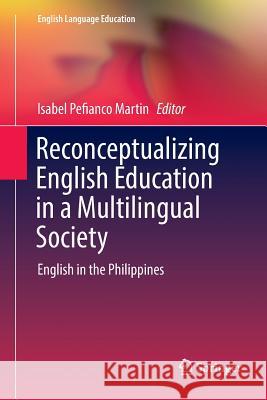Reconceptualizing English Education in a Multilingual Society: English in the Philippines » książka
topmenu
Reconceptualizing English Education in a Multilingual Society: English in the Philippines
ISBN-13: 9789811339615 / Angielski / Miękka / 2019 / 226 str.
Kategorie:
Kategorie BISAC:
Wydawca:
Springer
Seria wydawnicza:
Język:
Angielski
ISBN-13:
9789811339615
Rok wydania:
2019
Wydanie:
Softcover Repri
Ilość stron:
226
Waga:
0.34 kg
Wymiary:
23.39 x 15.6 x 1.27
Oprawa:
Miękka
Wolumenów:
01











